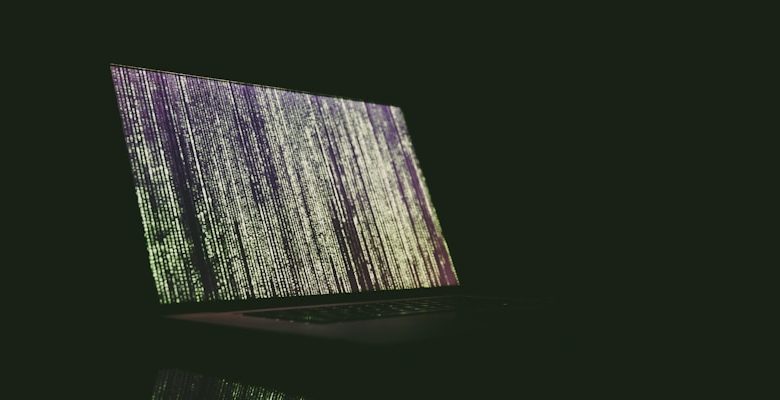How to Evaluate the Security of DeFi Platforms

- Understanding the Risks of DeFi Platforms
- Key Factors to Consider When Assessing DeFi Security
- Common Vulnerabilities in DeFi Platforms
- Best Practices for Evaluating DeFi Platform Security
- The Importance of Audits in DeFi Security
- Tools and Resources for Assessing DeFi Platform Security
Understanding the Risks of DeFi Platforms
When using DeFi platforms, it is crucial to understand the risks involved in order to make informed decisions. DeFi platforms operate on blockchain technology, which means that transactions are irreversible once they are confirmed. This can lead to potential risks such as smart contract bugs, vulnerabilities, and hacks. It is important to thoroughly evaluate the security measures in place on a DeFi platform before depositing any funds.
One of the key risks of DeFi platforms is the potential for smart contract vulnerabilities. Smart contracts are self-executing contracts with the terms of the agreement directly written into code. If there are bugs or vulnerabilities in the smart contract code, it can lead to funds being lost or stolen. It is essential to review the code of smart contracts and ensure that they have been audited by reputable third-party security firms.
Another risk to consider is the possibility of hacks on DeFi platforms. Hackers may exploit vulnerabilities in the platform’s code or infrastructure to steal funds. It is important to choose DeFi platforms that have robust security measures in place, such as multi-signature wallets, cold storage solutions, and insurance funds to protect against potential losses.
Overall, understanding the risks of DeFi platforms is essential for ensuring the security of your funds. By conducting thorough research, reviewing smart contract code, and choosing platforms with strong security measures, you can mitigate the risks associated with using DeFi platforms.
Key Factors to Consider When Assessing DeFi Security
When assessing the security of DeFi platforms, there are several key factors to consider. One important aspect to evaluate is the smart contract code that powers the platform. It is essential to review the code thoroughly to identify any potential vulnerabilities or weaknesses that could be exploited by malicious actors. Additionally, the reputation of the development team behind the platform is crucial. A team with a track record of building secure and robust systems is more likely to prioritize security in their DeFi platform.
Another factor to consider is the level of decentralization of the platform. A DeFi platform that is more decentralized is generally considered to be more secure, as it is less vulnerable to single points of failure. Furthermore, the security audits conducted on the platform can provide valuable insights into its overall security posture. Platforms that have undergone rigorous third-party security audits are likely to be more secure than those that have not.
It is also important to consider the security measures implemented by the platform, such as multi-signature wallets, rate limiters, and emergency withdrawal mechanisms. These measures can help mitigate the risk of attacks and protect users’ funds. Additionally, monitoring the platform for any security incidents or breaches can help identify potential vulnerabilities and address them before they are exploited.
Overall, assessing the security of DeFi platforms requires a comprehensive approach that takes into account various factors such as smart contract code, development team reputation, decentralization, security audits, and security measures. By carefully evaluating these factors, users can make informed decisions about the security of the DeFi platforms they choose to interact with.
Common Vulnerabilities in DeFi Platforms
When evaluating the security of decentralized finance (DeFi) platforms, it is crucial to be aware of common vulnerabilities that could potentially expose users to risks. By understanding these weaknesses, users can make more informed decisions about where to invest their funds. Some of the most prevalent vulnerabilities in DeFi platforms include:
- Smart contract bugs: Smart contracts are susceptible to bugs and vulnerabilities that can be exploited by malicious actors. It is essential to audit smart contracts thoroughly to ensure they are secure.
- Oracle manipulation: Oracles are third-party services that provide external data to smart contracts. If oracles are compromised, they can provide inaccurate data, leading to financial losses for users.
- Front-running attacks: Front-running occurs when a malicious user exploits time delays in transactions to execute trades before legitimate users, resulting in unfair advantages.
- Flash loan attacks: Flash loans allow users to borrow funds without collateral, making them vulnerable to attacks that manipulate prices or exploit vulnerabilities in DeFi protocols.
- Insufficient liquidity: Low liquidity in DeFi platforms can lead to price manipulation and increased volatility, putting users’ funds at risk.
By being aware of these common vulnerabilities, users can take proactive steps to mitigate risks and protect their investments in DeFi platforms. Conducting thorough due diligence, using reputable platforms, and staying informed about security best practices are essential for safeguarding funds in the rapidly evolving DeFi ecosystem.
Best Practices for Evaluating DeFi Platform Security
When evaluating the security of DeFi platforms, there are several best practices that can help investors make informed decisions. One key aspect to consider is the platform’s smart contract code. It is essential to review the code thoroughly to identify any potential vulnerabilities that could be exploited by malicious actors.
Additionally, it is important to assess the platform’s security measures, such as multi-signature wallets and insurance funds. Platforms that prioritize security and have robust measures in place are generally more trustworthy. Conducting due diligence on the team behind the platform is also crucial, as experienced developers are more likely to prioritize security.
Furthermore, staying informed about any security incidents or breaches that may have occurred on the platform can provide valuable insights into its overall security posture. Engaging with the platform’s community and seeking out reviews from other users can also help evaluate its security.
Ultimately, taking a comprehensive approach to evaluating the security of a DeFi platform is essential for protecting your investments. By following these best practices and remaining vigilant, investors can mitigate the risks associated with investing in DeFi platforms.
The Importance of Audits in DeFi Security
One crucial aspect to consider when evaluating the security of DeFi platforms is the presence of audits. Audits are essential in ensuring that the smart contracts and protocols used in DeFi platforms are secure and free from vulnerabilities. These audits are typically conducted by independent third-party security firms that specialize in assessing the code for potential weaknesses.
By undergoing thorough audits, DeFi platforms can identify and address any security issues before they can be exploited by malicious actors. This proactive approach to security not only helps protect user funds and assets but also enhances the overall trust and credibility of the platform.
It is important for users to verify that a DeFi platform has undergone comprehensive security audits from reputable firms. This information is usually available on the platform’s website or in their documentation. Users should also look for platforms that regularly update their audits to ensure that they are keeping up with the latest security standards and best practices.
Tools and Resources for Assessing DeFi Platform Security
When assessing the security of DeFi platforms, it is crucial to utilize various tools and resources to thoroughly evaluate their safety measures. These tools can provide valuable insights into potential vulnerabilities and weaknesses that could pose risks to users’ funds. Here are some key tools and resources that can aid in assessing the security of DeFi platforms:
– Security Audits: Conducting regular security audits by reputable firms can help identify any potential security flaws in a DeFi platform’s codebase. These audits provide an independent assessment of the platform’s security measures and can help ensure that best practices are being followed.
– Code Review Tools: Utilizing code review tools can help analyze the codebase of a DeFi platform for any potential vulnerabilities or bugs. These tools can provide automated scans and checks to identify security issues that may have been overlooked during development.
– Bug Bounty Programs: Participating in bug bounty programs can incentivize security researchers and white-hat hackers to identify and report vulnerabilities in a DeFi platform. By offering rewards for valid bug reports, platforms can proactively address security issues before they are exploited by malicious actors.
– Security Forums and Communities: Engaging with security forums and communities can provide valuable insights and best practices for securing DeFi platforms. These forums often discuss the latest security trends and vulnerabilities, allowing platform developers to stay informed and proactive in their security efforts.
By utilizing these tools and resources, stakeholders can take proactive steps to assess the security of DeFi platforms and mitigate potential risks to users’ funds. Regular security assessments and ongoing monitoring are essential to maintaining a secure DeFi ecosystem for all participants.



